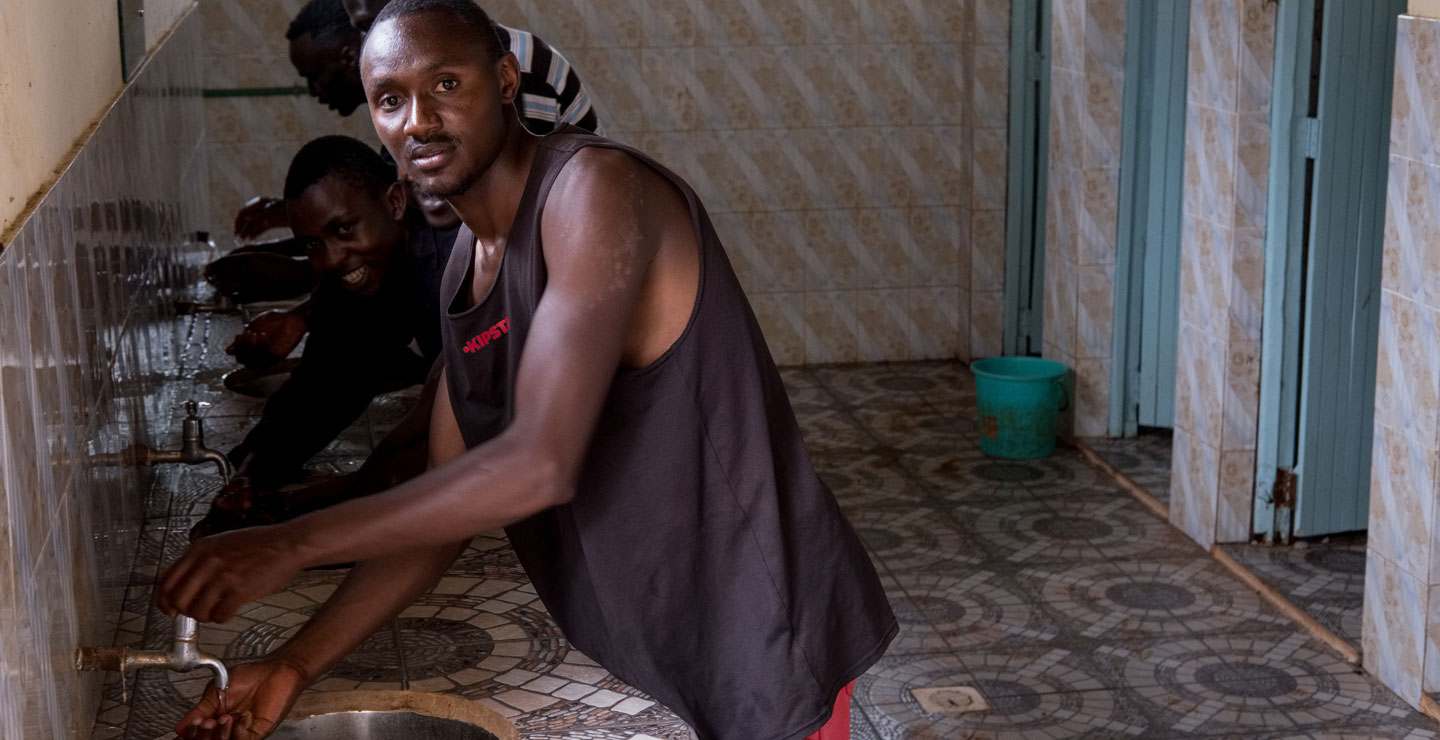IFAD-funded water system helps Kenyan students stay safe
IFAD Asset Request Portlet
Asset Publisher
IFAD-funded water system helps Kenyan students stay safe
Estimated reading time: 2 minutes
Last month, we brought you the story of the Mukurwe-ini Technical Training Institute, a school in Kenya’s Nyeri county whose new roof water harvesting system was improving the lives of the students, staff and nearby residents. In recent days, with Kenya now affected by COVID-19, we reached out to Patrick Muchemi, principal of the Institute.
As it turns out, the water harvesting system came through again, enabling all of the Institute’s 1,400 students and staff to maintain strong hygiene standards in the days after the crisis broke.
“Having our own permanent access to water during this crisis makes a huge difference, it is vital,” says Patrick.
For years, water had been a real problem for the Institute and the neighbouring farming communities. The pre-existing distribution system was gravity-fed, forcing the Institute, located at the top of a hill, to ration water among its staff and students. Meanwhile, the nearby low-lying villages struggled to cope with the massive surface runoff caused by heavy rains.
Thanks to the IFAD-supported Upper Tana Catchment Natural Resource Management Project (UtaNRMP), the Institute was able to invest in a water harvesting system that allows them to collect and store rainwater for later use. It also reduces the runoff to the nearby valleys and enables the Institute to maintain extensive vegetable gardens, creating jobs for students and local villagers.
When COVID-19 came to Kenya, Patrick had one week to close the school and send all his students home.
“During that week, our staff and students needed to wash their hands every two hours as recommended. The water needs were huge, but fortunately we were able to meet them,” says Patrick.
Now that the students are back home, water is essential for the rotating teams of 18 staff and workers who are maintaining security, managing minimum administrative services, tending the garden (including Patrick’s roses, of course) and doing construction and maintenance work.
The investments in the Institute’s water are making a huge difference now, and they were also substantially improving the lives of students, staff and surrounding communities before the COVID-19 pandemic. These investments are proving to be more priceless than ever – and for many, they will surely help to keep the future bright.
Learn more about IFAD’s work in Kenya.
Publication date: 14 April 2020